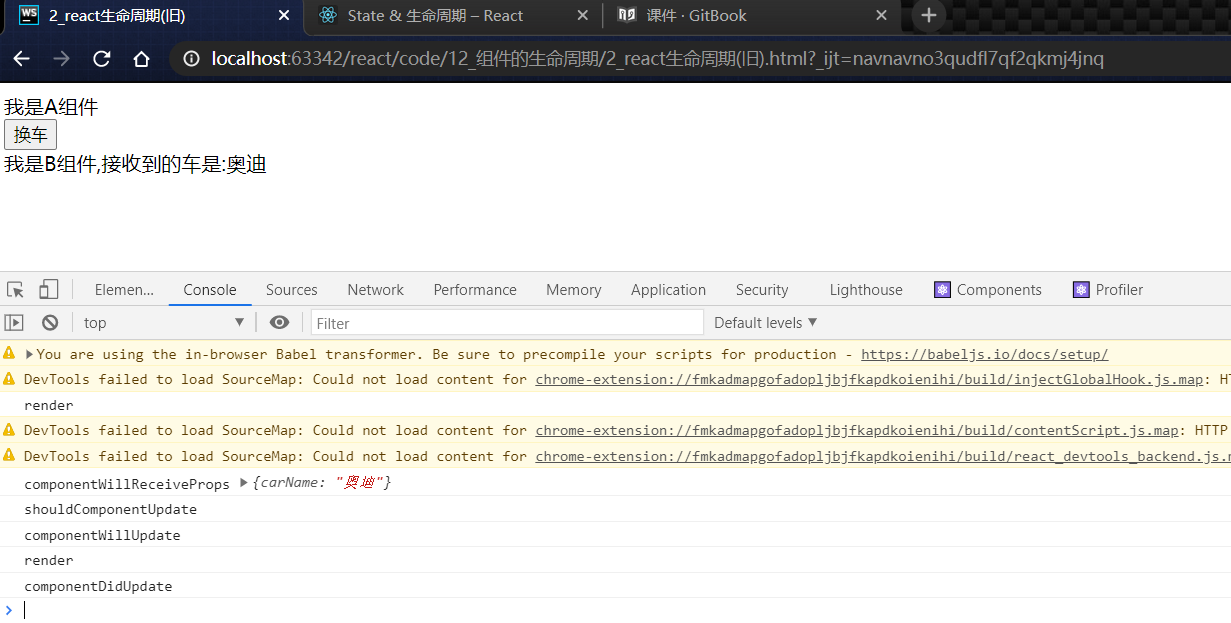041生命周期(旧)父组件render流程
componentWillReceiveProps被调用的时机
- 有人建议他改成 componentWillReceiveNewProps
- 以为 组件将要接收新的 props ,一开始第一次传的不算
- 但是我这边我还是调用了
class A extends React.Component {
// 存储骑车的名字
// 初始化状态
state = {carName: 'BMW'}
changeCar = () => {
// 更新车你的信息
this.setState({carName: "奥迪"})
};
render() {
return (
<div>
<div>我是A组件</div>
<button onClick={this.changeCar}>换车</button>
{/*然后B组件来展示这个骑车的信息*/}
<B carName={this.state.carName}/>
</div>
)
}
}
class B extends React.Component {
// 这个有瑕疵
/*
* 有人建议他改成 componentWillReceiveNewProps
* 以为 组件将要接收新的 props ,一开始第一次传的不算
* 但是我这边我还是调用了
* */
// 所以应该叫做: 组件将要接收新的props的钩子
componentWillReceiveProps(props) {
console.log("componentWillReceiveProps", props);
}
// 控制组件更新的阀门
shouldComponentUpdate() {
console.log("shouldComponentUpdate");
// 这里 必须要返回一个 布尔值
return true; // 返回true 就能正常走
// return false; // 返回 f 就凉了
}
// 组件将要更新的钩子
componentWillUpdate() {
console.log("componentWillUpdate");
}
// 组件将要更新的钩子
componentDidUpdate() {
console.log("componentDidUpdate");
}
render() {
console.log("render");
return (
<div>
我是B组件,接收到的车是:{this.props.carName}
</div>
)
}
}
// A是父组件 B是子组件
//渲染组件
ReactDOM.render(<A/>, document.getElementById('test'))
